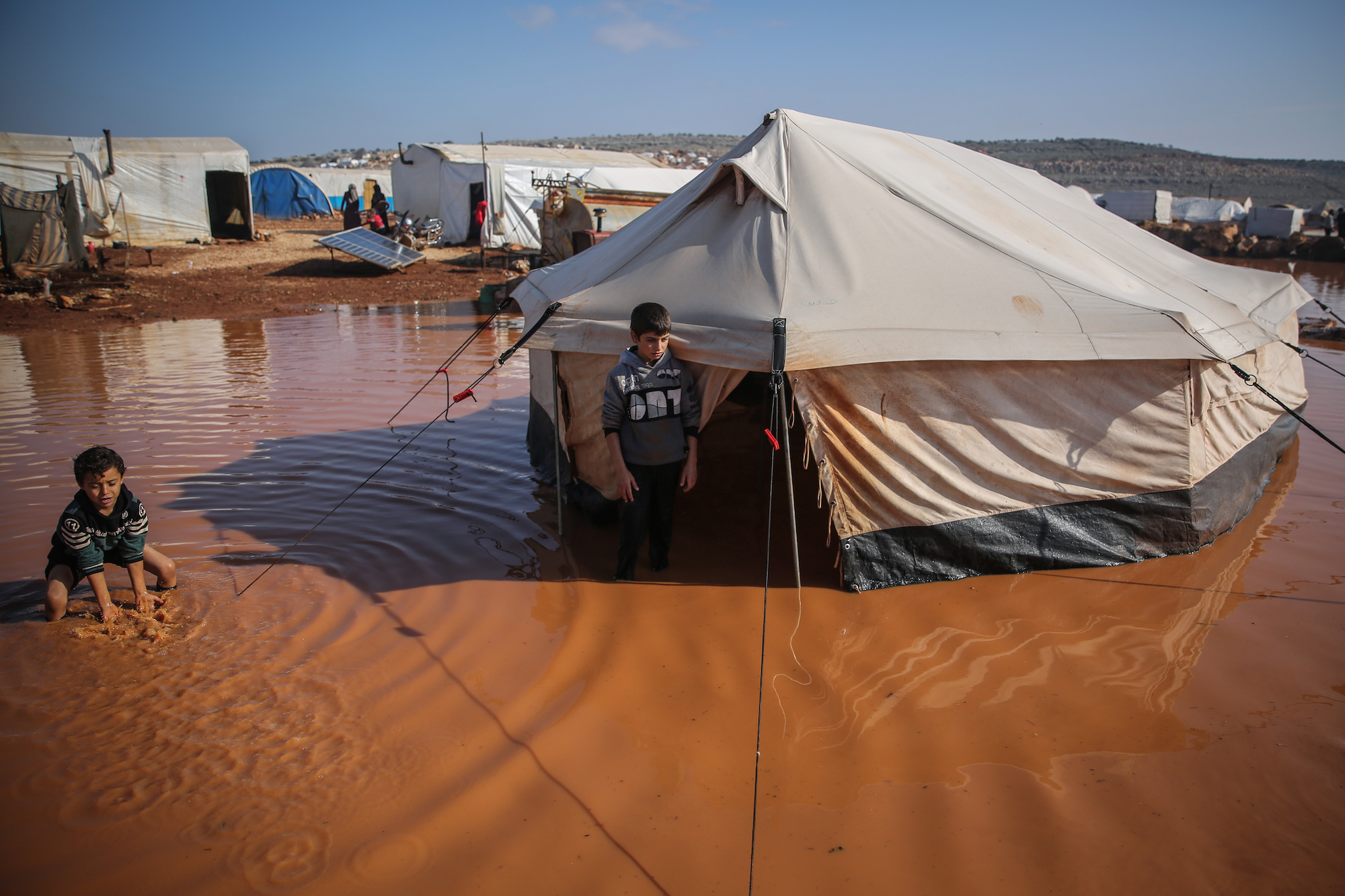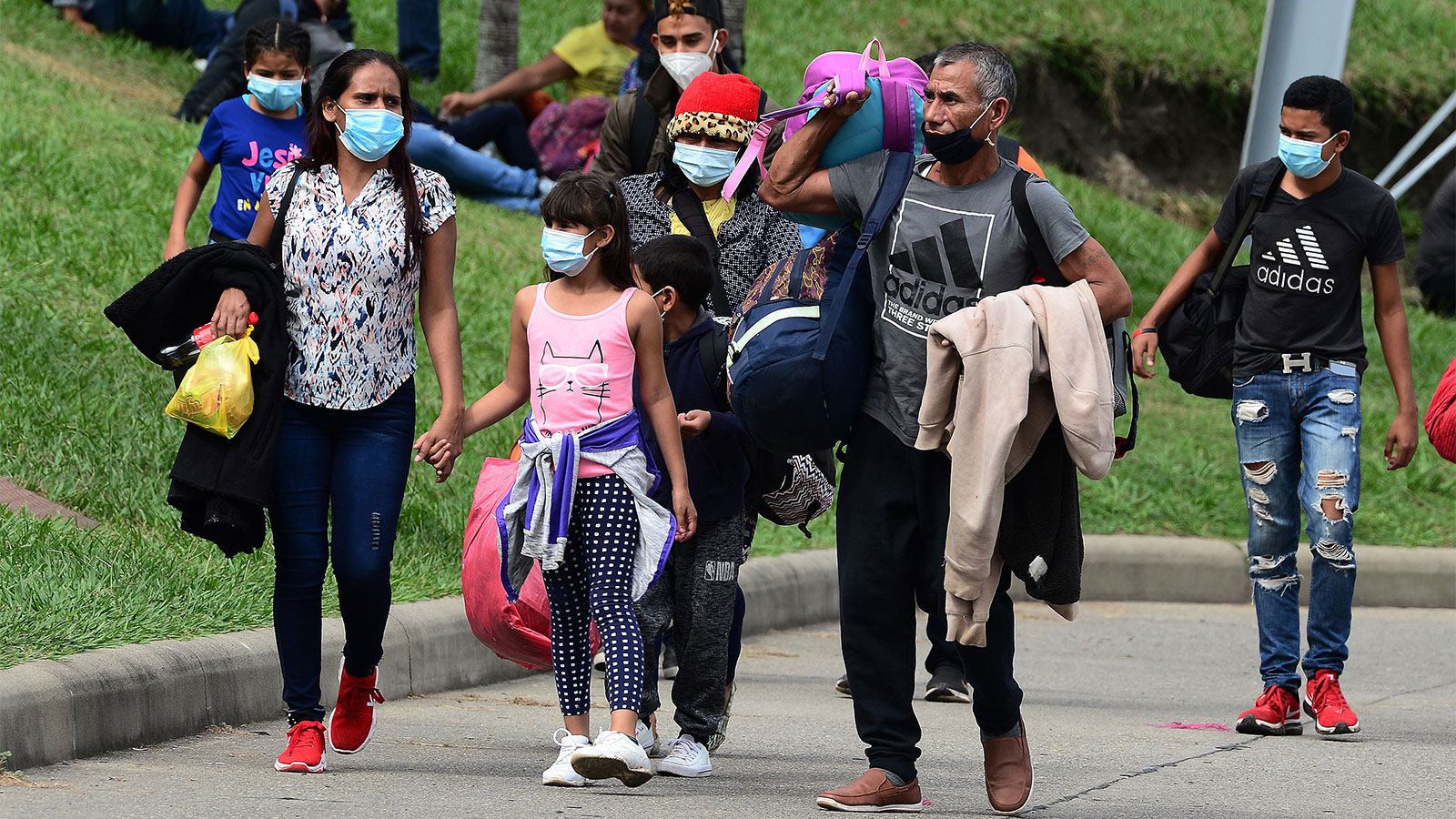‘Disappointing’: The US’s first climate migration report falls flat
Oct 25, 2021
On Thursday, the National Security Council released a long-anticipated report on what environmental advocates are calling one the most pressing issues of our time: climate change-induced migration. The report is the first U.S. government report on the effects of climate on migration and arrives right as President Biden is slated to attend a major United Nations climate conference in Glasgow, Scotland known as COP26.
The 37-page report, which was commissioned by President Joe Biden in February with an August deadline, notes that climate migration, both within countries and between them, is already here, but is set to get a lot worse. Climate change is expected to displace as many as 143 million people, nearly three percent of the populations of Latin America, South Asia, and sub-Saharan Africa, by 2050. Roughly a quarter of those are expected to migrate internationally as a result of their displacement. The sheer mass of migrants will have “significant implications for international security, instability, conflict, and geopolitics,” the report says. This includes climate change-induced wars and conflicts over natural resources, namely water.
National security officials suggested a series of both preventive and adaptive steps in the report, such as increasing U.S. aid to countries regularly ravaged by severe weather events, more robust support for U.S. climate scientists to track these events, and legislative actions to protect climate migrants and offer asylum. They also urge the U.S. government to establish an interagency working group on climate migration — much like the White House’s interagency working group on climate change — to coordinate its efforts to address the challenge. That group would be the one in charge of drafting U.S. policy, strategies, and budgets to help those impacted by climate change and migration, either domestically or internationally. Although it isn’t clear how or when the group will be created, it seems to be the best shot to put in motion policy changes, according to advocates.
The report is “an important acknowledgment of a troubling lack of a policy framework to protect those uprooted by the climate crisis,” as the Lutheran Immigration and Refugee Service, or LIRS, pointed out in a statement. However, the response from climate and migration experts seems to be general disappointment. While many organizations praised the fact that the document exists, others also pointed out how it failed to include actual policy prescriptions and pathways to move forward.
“It’s really disappointing,” said Amali Tower, founder and executive director of the nonprofit advocacy group Climate Refugees. “We went from a bold call and vision to, well, nothing.”*

Anas Alkharboutli / Picture alliance via Getty Images
When the report was announced in February, climate migration advocates and researchers were excited, Tower recalls. Her group and others held long conversations and presented their recommendations to the White House. Tower’s organization introduced several ideas, like updating the training for refugee, asylum, and immigration officers so it’ll recognize how climate change interacts with asylum law, or establishing a new ‘climate change’ resettlement category for refugees who cannot return to their countries due to environmental risks.
As months went by, the images of escalating violence in the U.S.-Mexico border against migrants started eroding Tower’s hope. Then, in July, the first strategy discussing the root causes of migration in Central America fell flat. And when the report missed its intended deadline in August, Tower’s excitement had completely shifted into frustration.
The final report doesn’t reflect any of the policy recommendations her group and others brought up during consultation, Tower said. ”It doesn’t feel like it’s a step forward,” but a repetition of what’s already known, she added.
Kayly Ober, senior advocate and program manager for the Climate Displacement Program at Refugees International, echoed the disappointment felt amongst advocates. “The report is long on description and too short on prescription,” she said. “It seems that it took them eight months to put together this report that is essentially a literature review, which required much deeper thought.
However, noting that the report was a regurgitation of ideas and facts already well-documented by advocates across the globe, Erol Yayboke, a director at Center for Strategic and International Studies, says it was significant in uplifting these ideas to the White House.
One of the key legislative suggestions offered by the report was the expanded use of an already established migrant protection program known as Temporary Protected Status, or TPS — a proposition floated around by Yayboke’s policy think tank last year. Historically, TPS has offered temporary residence to individuals from a designated list of countries that have been struck by natural disasters or political unrest causing displacement, but in its 30 years of existence, it has only been extended to roughly 20 countries. Expanding the program could potentially prevent build-ups at the border like we saw this year after Hurricanes Eta and Iota devastated Central America — and it could be done without congressional support.
“The fact that it’s now in a National Security Council Report means that it’s got a lot more legs behind it,” Yayboke, who was a co-author of a report on the use of TPS for climate refugees last year, told Grist. “That’s one step closer to implementing new and strengthened pathways for the millions of people who are going to be affected by climate change.
Yayboke says he understands why many groups may be disappointed with the report, but notes it an important step forward — especially given the country’s documented inability to pass climate legislation. “Very few people would say with a straight face that our current protections are sufficient — but this document is just meant to be a report,” he said. “Some of this may take congressional action, which we can all agree is really hard in today’s climate and the administration needs to take its time to make sure that their plans are durable from rollbacks from future administrations.”
While that may be true, the report made one thing clear about the country’s role in protecting climate migrants — despite being the largest greenhouse gas emitter in history: the country has no obligation to support climate migrants. “The United States does not consider its international human rights obligations to require extending international protection to individuals fleeing the impacts of climate change,” the report states.
Climate Refugees’ Amali Tower believes that’s a mistake, since “climate change destabilizes entire existences, it marginalizes people who are already oppressed, and it erodes their rights, their abilities to feed themselves, to work, to withstand disasters, to survive increasing costs of living,” she said. “This is a failure to not recognize all of that in your policy prescription.”
*Correction: This story originally misstated the last name of Climate Refugees founder Amali Tower.
This story was originally published by Grist with the headline ‘Disappointing’: The US’s first climate migration report falls flat on Oct 25, 2021.
